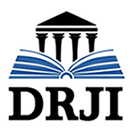Publication Ethics
The publication of an article in the peer-reviewed journal IJETAI is a process of permanent knowledge improvement. It directly reflects the quality of the authors' work and the institutions that support them. Furthermore, peer-reviewed articles help embody the scientific method. Therefore, it is essential to agree upon standards of expected ethical behavior for all parties involved in the act of publishing: the author, the journal editor, the peer reviewer, the publisher, and the society of society-owned or sponsored journals.
IJETAI takes its duties of guardianship over all stages of publishing extremely seriously, and we recognize our ethical and other responsibilities. We are committed to ensuring that advertising, reprint, or additional commercial revenue has no impact or influence on editorial decisions.
Duties of Authors
- Reporting Standards: Authors of reports of original research should present an accurate account of the work performed and an objective discussion of its significance. Underlying data should be represented accurately in the paper. A paper should contain sufficient detail and references to allow others to replicate the work. Fraudulent or knowingly inaccurate statements constitute unethical behavior and are unacceptable.
- Data Access and Retention: Authors are asked to provide the raw data in connection with a paper for editorial review and should be prepared to provide public access to such data (consistent with the ALPSP-STM Statement on Data and Databases), if practicable, and should, in any event, be prepared to retain such data for a reasonable time after publication.
- Originality and Plagiarism: The authors should ensure that they have written entirely original works and that if they have used the work and words of others, this has been appropriately cited or quoted.
- Multiple, Redundant, or Concurrent Publication: An author should only publish manuscripts describing the same research in one journal or primary publication. Submitting the same manuscript to more than one journal concurrently constitutes unacceptable publishing behavior.
- Acknowledgment of Sources: Proper acknowledgment of the work of others must always be given. Authors should cite publications that have influenced the nature of the reported work.
- Authorship of the Paper: Authorship should be limited to those who have contributed significantly to the conception, design, execution, or interpretation of the reported study. All those who have made significant contributions should be listed as co-authors. Where others have participated in certain substantive aspects of the research project, they should be acknowledged or listed as contributors. The corresponding author should ensure that all appropriate co-authors and no inappropriate co-authors are included in the paper and that all co-authors have seen and approved the final version of the article and have agreed to its submission for publication.
- Disclosure and Conflicts of Interest: All authors should disclose in their manuscript any financial or other substantive conflicts of interest that might be construed to influence the results or interpretation of their manuscript. In addition, all sources of financial support for the project should be disclosed. Examples of potential conflicts of interest which should be disclosed include employment, consultancies, stock ownership, honoraria, paid expert testimony, patent applications/registrations, and grants or other funding. Potential conflicts of interest should be disclosed at the earliest stage possible.
Duties of Editors
- Fair Play: An editor at any time evaluate manuscripts for their intellectual content without regard to race, gender, sexual orientation, religious belief, ethnic origin, citizenship, or political philosophy of the authors.
- Confidentiality: The editor and any editorial staff must not disclose any information about a submitted manuscript to anyone other than the corresponding author, reviewers, potential reviewers, other editorial advisers, and the publisher, as appropriate.
- Disclosure and Conflicts of Interest: Unpublished materials disclosed in a submitted manuscript must not be used in an editor's research without the author's express written consent.
- Publication Decisions: The editor board journal is responsible for deciding which of the articles submitted to the journal should be published. The validation of the work in question and its importance to researchers and readers must always drive such decisions. The editors may be guided by the policies of the journal's editorial board and constrained by such legal requirements as shall then be in force regarding libel, copyright infringement, and plagiarism. The editors may confer with other editors or reviewers in making this decision. Publishing fees or waiver status must not influence editorial decision-making.
- Review of Manuscripts: The editor must ensure that the editor for originality initially evaluates each manuscript. The editor should organize and use peer review fairly and wisely. Editors should explain their peer review processes in the information for authors and indicate which journal parts are peer-reviewed. The editor should use appropriate peer reviewers for papers considered for publication by selecting people with sufficient expertise and avoiding those with conflicts of interest.
Duties of Reviewers
- Contribution to Editorial Decisions: Peer review assists the editor in making editorial decisions and, through editorial communications with the author, may also assist the author in improving the paper.
- Promptness: Any selected referee who feels unqualified to review the research reported in a manuscript or knows its prompt review will be impossible should notify the editor and excuse himself from the review process.
- Standards of Objectivity: Reviews should be conducted objectively. Personal criticism of the author is inappropriate. Referees should express their views clearly with supporting arguments.
- Confidentiality: Any manuscripts received for review must be treated as confidential documents. They must not be shown to or discussed with others except as authorized by the editor.
- Disclosure and Conflict of Interest: Privileged information or ideas obtained through peer review must be confidential and not used for personal advantage. Reviewers should not consider manuscripts with conflicts of interest resulting from competitive, collaborative, or other relationships or connections with any of the authors, companies, or institutions connected to the papers.
- Acknowledgment of Sources: Reviewers should identify relevant published work that the authors have not cited. Any statement that an observation, derivation, or argument had been previously reported should be accompanied by the appropriate citation. A reviewer should also call to the editor's attention any substantial similarity or overlap between the manuscript under consideration and any other published paper they have personal knowledge of.
The items in the list below are considered unethical and misconduct behavior. Authors are strongly suggested to be very well informed about them and avoid them under all circumstances.
- Plagiarism
- Duplication
- Fraud Authorship/Denied Authorship
- Research/Data Fabrication
- Salami Slicing/Salami Publication
- Breaching of Copyrights
- Prevailing Conflict of Interest
Plagiarism Detection
All articles submitted to the journal are processed with plagiarism software to detect unethical and misconduct behavior listed above. In addition, to prevent plagiarism, we offer free plagiarism screening.
Ethical policies
IJETAI is vigilant in upholding high ethical standards for research and publishing and will take appropriate actions on forms of misconduct such as (but not limited to):
- Authorship: Submitting multi-author drafts without the consent of all authors, improper attribution of author credits such as the exclusion of contributing authors, or inclusion of authors making an insufficient contribution.
- Data fabrication and falsification: Manipulative, deceptive, or willful suppression and misrepresentation of data or omitting confounding or contradictory data.
- Plagiarism and misuse of intellectual property: Using the expression, language, ideas, and thoughts of existing or previously published research and materials without appropriate reference to the source and willful misrepresentation of the work of others as one's original work.
- Non-compliance with standard research practices: Failure to comply with established, accepted, and ethical practices in the design and performance of methodological research processes; manipulating procedures or outcomes to obtain pre-determined or desired results. The willful use of inappropriate statistical or analytical methods to distort or misrepresent results and improper data reporting.
- Non-conformity to research guidelines: All research must conform to appropriate institutional, national, and recognized guidelines, standards, and laws. The Journal will not tolerate violations of applicable local regulations and laws involving funds, care of animals, human subjects, drugs, and biological or chemical materials.
Suspected cases of misconduct should be reported to the IJETAI Ethics Committee. All cases will be carefully considered in strict confidence. In handling allegations, IJETAI adheres to the guidelines and flowcharts of the Committee on Publication Ethics (COPE).
Concerns of any form of publication misconduct, as described here or in other standards and guidelines, such as authorship issues, plagiarism, data fabrication or falsification, citation manipulation, figure manipulation, or any other forms of misconduct, should be reported to the IJETAI Editorial Office immediately at ijetai@topazart.info
Conflict of Interest
All manuscripts published on IJETAI are accompanied by a conflict of interest disclosure statement or a declaration by the authors that they do not have any conflicts of interest to declare.
These include:
All financial and non-financial interests and relationships;
Direct employment with a private sector entity (whether full or part-time), and service on private sector and non-profit Boards and advisory panels, whether paid or unpaid, and;
IJETAI only publishes articles after the author(s) have confirmed that they have disclosed all potential conflicts of interest.
Research Involving Animals
Investigators who utilize animals in their research shall provide a statement that the research complied with applicable institutional, state, national, and international rules, guidelines, and regulations for the humane use of animals in research.
Research Involving Human Subjects
Investigators who utilize human subjects in their research shall state that the research was performed in compliance with the Helsinki Accords for Ethical Principles For Medical Research Involving Human Subjects. In addition, investigators shall seek approval for study from their local Institutional Review Board (or equivalent) and utilize informed consent as governed by that IRB.
Ethics and Malpractice Statement
The Ethics Committee comprises the IJETAI Managing Editor, Editor-in-Chief, and Associate Editors. The Managing Editor chairs it. Its primary role is to evaluate and disposition complaints from the Editorial Office.
Within seven (7) days of receipt of a misconduct allegation, the IJETAI Managing Editor forwards the allegation to all the committee members and other interested parties. Committee members review the allegation complaint and express their opinion within two (2) weeks of receipt. If necessary, the Managing Editor will solicit the opinion of IJETAI reviewers. Views from the Advisory Editors may also be solicited. Within four (4) weeks of receipt, a final decision on the allegation will be made and sent to the parties. Occasionally, this timeframe might be prolonged depending on the complexity of the allegation.
The IJETAI Ethics Committee has successfully resolved all recent allegations of publication misconduct. When appropriate, the Erratum, Corrigendum, and Retraction notes for these cases have been posted on the IJETAI website.
Fundamental Errors in Published Works
Whenever an author discovers a noteworthy error in his/her published work, the author must promptly notify the publisher or the journal editor that the paper will be retracted and corrected. If a third-party entity notices the error, the author must retract the publication and make the necessary corrections or give the essential information about the correctness of the edited paper.
Advertising
Advertisements are unrelated to editorial decision-making and shall be kept separate from the published content.
Direct Marketing
Any direct marketing activities on behalf of the journal shall be appropriate, well-targeted, and unobtrusive. They are unrelated to editorial decision-making.




